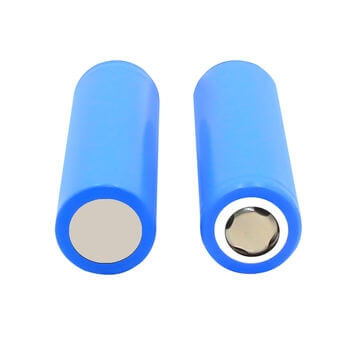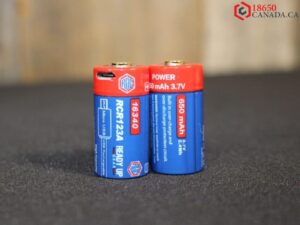Maximizing the Lifespan of Your 18650 Batteries: A Guide to Proper Storage
Proper storage is crucial for maintaining the longevity and performance of your 18650 batteries. Incorrect storage practices can result in capacity loss, diminished performance, and potential safety hazards. In this comprehensive guide, we will explore the best practices for storing your 18650 batteries to ensure their maximum lifespan and optimal functionality.
Understanding the Importance of Proper Storage for 18650 Batteries:
Before delving into storage guidelines, it is essential to understand why proper storage matters. Factors such as temperature, humidity, and light exposure can significantly impact battery degradation. By implementing appropriate storage practices, you can mitigate these factors and extend the lifespan of your 18650 batteries.
Best Practices for Storing Your 18650 Batteries:
- Selecting the Right Storage Container:
- Choose a non-conductive container, such as one made of plastic or silicone, to prevent accidental short circuits.
- Ensure that the container offers sufficient space for your batteries and facilitates easy organization.
- Creating Ideal Storage Conditions:
- Temperature Range: Store your batteries in a cool environment, maintaining temperatures between 20°C and 25°C (68°F and 77°F).
- Humidity Levels: Avoid high-humidity areas, as moisture can damage batteries. Aim for humidity levels below 80%.
- Light Exposure: Protect your batteries from direct sunlight and other sources of UV light, as they can degrade battery performance.
- Separation and Organization:
- Prevent Battery-to-Battery Contact: Store batteries individually or use separators to prevent contact and minimize the risk of short circuits.
- Labeling and Identification: Label your batteries with purchase or usage dates to track their age and prioritize usage accordingly.

Safety Precautions:
To ensure the safe storage of your 18650 batteries, follow these precautions:
- Avoid Extreme Temperatures: Keep batteries away from extreme heat or cold, as it can cause irreversible damage or affect performance.
- Protect from Moisture: Store batteries in a dry location to prevent moisture accumulation, which can lead to corrosion and battery failure.
- Prevent Physical Damage: Handle batteries with care, avoiding drops or exposure to impact or pressure.
- Flammable Materials: Store batteries away from flammable materials to reduce the risk of fire or combustion.
- Child and Pet Safety: Keep batteries out of reach of children and pets to prevent accidental ingestion or harm.
Proper Transportation of Stored Batteries:
When transporting stored batteries, consider the following:
- Battery Cases and Holders: Use dedicated battery cases or holders to provide insulation and protection during transportation.
- Battery Isolation and Protection: Ensure batteries are securely separated to prevent contact and potential short circuits.
- Compliance with Local Regulations: Familiarise yourself with local regulations regarding battery transportation and adhere to them.
Maintaining Battery Health during Storage:
To keep your batteries healthy during storage:
- Regular Battery Rotation: Periodically rotate your batteries to distribute usage evenly and prevent capacity imbalance.
- Charge Levels for Storage: Store batteries at approximately 40% to 60% charge to minimize self-discharge while avoiding overcharging.
- Periodic Maintenance and Inspection: Check batteries for any signs of damage or leakage, and clean the contacts if necessary.
- Battery Testing and Capacity Checks: Occasionally test the capacity of stored batteries to ensure they are performing as expected.
Common Mistakes to Avoid:
Be mindful of these common mistakes to ensure optimal battery storage:
- Loose or Unprotected Storage: Avoid leaving batteries loose in pockets, bags, or drawers without protective containers.
- Extreme Temperatures or Sunlight: Refrain from storing batteries in places exposed to excessive heat, cold, or direct sunlight.
- Mixing Different Chemistries: Do not store batteries with different chemistries together, as it can lead to cross-contamination and safety risks.
Final Thoughts
By following the proper storage practices outlined in this guide, you can maximize the lifespan and performance of your 18650 batteries. Remember to select appropriate storage containers, maintain ideal storage conditions, adhere to safety precautions, and employ proper transportation methods. Regularly inspect and maintain your stored batteries, and always prioritize safety. With these practices in place, you can enjoy optimal battery performance when you need it most.

